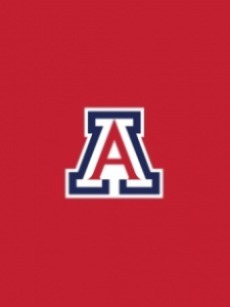Image

christed@arizona.edu
Office
Modern Languages Building 326
Christenson, David M.
Professor Emeritus
Ph.D. Classical Philology, Harvard University
M.A. Classics, University of California at Santa Barbara
A.B. English Language and Literature, University of Michigan
Areas of Expertise
- Greek and Roman Theater
- Ancient Slavery
- Early Imperial Latin Literature and Culture
- Gender in Antiquity
- Translation and Reception Studies
Books (single-authored)
- Plautus: Rudens (Cambridge Greek and Latin Classics). Cambridge University Press, under contract.
- Roman Comedy. Bloomsbury Publishing, under contract.
- Plautus: Pseudolus. Cambridge University Press, 2020. [reviews: Greece & Rome 69.2 (2022) 313; Classica: Revista Brasileira de Estudos Clássicos 34.2 (2021); Exemplaria Classica: Journal of Classical Philology 25 (2021) 301-6; The Classical Review (2021); Bryn Mawr Classical Review (2021); Classics for All (2020)].
- Plautus: Casina (Bloomsbury Ancient Comedy Companions). Bloomsbury Publishing, 2019. [reviews: Gnomon 93.2 (2021) 178-9; The Classical Outlook 95.3 (2020) 128-9; The Classical Journal, online reviews (2020.05.03); The Classical Review 70.1 (2020) 84-6; Bryn Mawr Classical Review (2021)].
- Hysterical Laughter: Four Ancient Comedies about Women. Oxford University Press, 2015. [review: Bryn Mawr Classical Review (2015)].
- Roman Comedy: Five Plays by Plautus and Terence. Focus Classical Library/Hackett Publishing, 2010. [review: Bryn Mawr Classical Review (2010)].
- Plautus: Casina, Amphitryon, Captivi, Pseudolus. Focus Classical Library/Hackett Publishing, 2008. [review: Bryn Mawr Classical Review (2009)].
- Plautus: Amphitruo. Cambridge University Press, 2000. [reviews: Greece & Rome, 2nd ser. 48 (2001) 97; Emerita 69 (2001) 162-4; Rivista di filologia 129 (2001) 91-99; Hermes: Boletín de crítica bibliográfica (2001) 93-96 Scholia Reviews 11 (2002) 20; Bryn Mawr Classical Review (2002); L'Antiquité classique 71 (2002) 315-17; Mnemosyne 55 (2002) 626-29; The Classical Journal 98 (2003) 325-28; Arctos 38 (2004) 231-33; Gnomon 77 (2005) 316-19].
Edited Volume
- Christenson, D. and C. White (eds.), 2024. Sublime Cosmos in Graeco-Roman Literature and its Reception: Intersections of Myth, Science and History (Essays in Honour of Thomas D. Worthen). Bloomsbury Publishing. [review: Bryn Mawr Classical Review (2025)]
Selected Refereed Articles, Chapters, Notes, Encyclopedia Entries, and Invited Book Reviews & Review Articles
- "Frighteningly Funny Gods: Comic and Cosmic Space in Plautus," in D. Christenson and C. White (eds.), Sublime Cosmos in Graeco-Roman Literature and its Reception: Intersections of Myth, Science and History (Essays in Honour of Thomas D. Worthen). Bloomsbury Publishing, 2024: 133-56.
- "The Art of Communicative Grammar." Review of H. Pinkster, The Oxford Latin Syntax (2 vols.), Mnemosyne 77.1 (2024): 145-56.
- "Concocting Justice: Dicaeopolis the Cook-comedian," in Costume Change in the Comedies of Aristophanes, ed. N. Tsoumpra. Special Volume of Illinois Classical Studies (45.2), 2021: 265-86.
- Review of C. Questa, Titus Maccius Plautus: Pseudolus (QuattroVenti), Gnomon 93.6 (2021): 502-8.
- "Nouo Modo Nouom Aliquid Inuentum: Plautine Priorities," in Blackwell's Companion to Plautus, eds. D. Dutsch and G.F. Franko. Blackwell-Wiley Publishing, 2020: 77-91.
- "Metatheatre," in The Cambridge Companion to Roman Comedy, ed. M. Dinter. Cambridge University Press, 2019: 136-50. [reviews: Bryn Mawr Classical Review 2020.05.17; The Classical Review 70.1 (2020): 1-3; The Journal of Roman Studies 110 (2020): 1-2].
- "All's Well That Ends Well? Old Fools, Morality, and Plautine Epilogues," in Roman Drama and its Contexts, eds. S. Frangoulidis, S. Harrison and G. Manuwald. Walter de Gruyter Trends in Classics Supplementary Volume 34, 2016: 215-30.
- "A Roman Thesaurus: Religion, Marriage, Metatheater, and Concord in Aulularia," in Plautine Trends: Studies in Plautine Comedy and its Reception, Festschrift in Honor of Professor Dimitrios Raios, eds. I.N. Perysinakis and E. Karakasis. Walter de Gruyter Trends in Classics Supplementary Volume 29, 2014: 13-42.
- "Ancient Roman Comedy," and "Plautus," in The Encyclopedia of Humor Studies, Gen. ed. S. Attardo. Sage Publications (2014): 1.35-39, 2.575-77.
- "Eunuchus," in Blackwell's Companion to Terence, eds. A. Augoustakis and A. Traill. Blackwell-Wiley Publishing (2013): 262-80. [reviews: The Classical Journal (2014); Bryn Mawr Classical Review 2015.05.15; Classical Review 65 (2015): 428-30; Journal of Roman Studies 105 (2015): 444-5].
- "Unbearding Morality: Appearance and Persuasion in Pro Caelio," Classical Journal 100 (2004): 61-72.
- "Superbia in Vergil's Aeneid: Who's Haughty and Who's Not?," Scholia 11 (2002): 44-54.
- "Grotesque Realism in Plautus' Amphitruo," Classical Journal 96 (2001): 243-60.
- "Callinus and militia amoris in Achilles Tatius' Leucippe and Cleitophon," Classical Quarterly n.s. 50 (2000): 631-2.
Selected Awards
- 2013: University of Arizona Graduate College Graduate Education Teaching and Mentoring Award
- 2012: University of Arizona Graduate and Professional Student Council Outstanding Mentor of Graduate Students
- 2011-12: Loeb Classical Library Foundation Fellowship
- 2008: University of Arizona College of Humanities Humanities Seminars Program Superior Teaching Award
- 2006: University of Arizona Graduate and Professional Student Council Graduate Student Advisor of the Year
M.A. Thesis Committees Directed or Served at the University of Arizona

